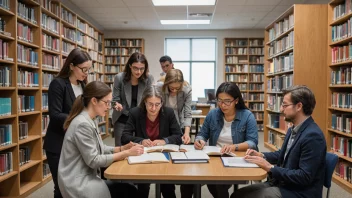Sociology, the study of society and social behavior, plays a crucial role in helping us understand the complexities of modern life. As our world evolves, so do the social challenges and dynamics we face. Sociology provides insight into human interactions, cultural norms, and institutional frameworks that shape our experiences. This article explores how sociology contributes to our understanding of contemporary society through key points that highlight its relevance and application.
1. Understanding Social Structures
Sociologists examine the various structures that compose society, such as family, education, and the economy. By analyzing these structures, we can better understand how they influence individual behavior and societal outcomes. This understanding helps in addressing issues like inequality and social mobility.
2. Analyzing Cultural Norms and Values
Cultural norms and values dictate how individuals interact and behave within a society. Sociology investigates these cultural elements to uncover the underlying beliefs and practices that guide social life. This analysis is essential in promoting cross-cultural understanding and tolerance in our increasingly diverse world.
3. Addressing Social Issues
Sociology provides tools to identify and address pressing social issues such as poverty, discrimination, and crime. By applying sociological theories and methods, researchers can develop effective strategies to combat these issues and promote social justice.
4. Understanding Change and Social Movements
Throughout history, societies have undergone significant changes driven by social movements. Sociology helps us understand the origins, dynamics, and outcomes of these movements, allowing us to appreciate the role of collective action in shaping social progress and reform.
5. Enhancing Policy Development
Policymakers rely on sociological research to inform their decisions. By understanding social dynamics and the needs of various communities, sociology contributes to creating effective policies that address public concerns and improve societal well-being.
6. Exploring Globalization and Society
Globalization has transformed how societies function and interact. Sociologists study the effects of globalization on culture, economy, and identity, providing insights into both the challenges and opportunities presented by our interconnected world.
7. Interdisciplinary Collaboration
Sociology often intersects with other fields, such as psychology, economics, and political science. This interdisciplinary approach enriches our understanding of social phenomena and fosters more comprehensive solutions to complex societal challenges.
8. Advancing Education and Awareness
Sociological research and education promote awareness about social issues and encourage critical thinking. By fostering a sociological imagination, individuals become more informed citizens capable of engaging with societal challenges.
9. Informing Public Discourse
Through media, literature, and public discussions, sociology influences how we talk about social issues. Sociologists provide evidence-based perspectives that can reshape public discourse and challenge stereotypes or misconceptions.
10. Fostering Community Engagement
Sociology emphasizes the importance of community and social networks. By studying these connections, sociologists highlight the role of community engagement in promoting social cohesion and addressing local issues.
In conclusion, sociology is integral to understanding modern society. Its insights into social structures, cultural norms, and pressing issues equip us to navigate the complexities of contemporary life. By applying sociological perspectives, individuals and policymakers alike can work towards fostering a more just and equitable society.






